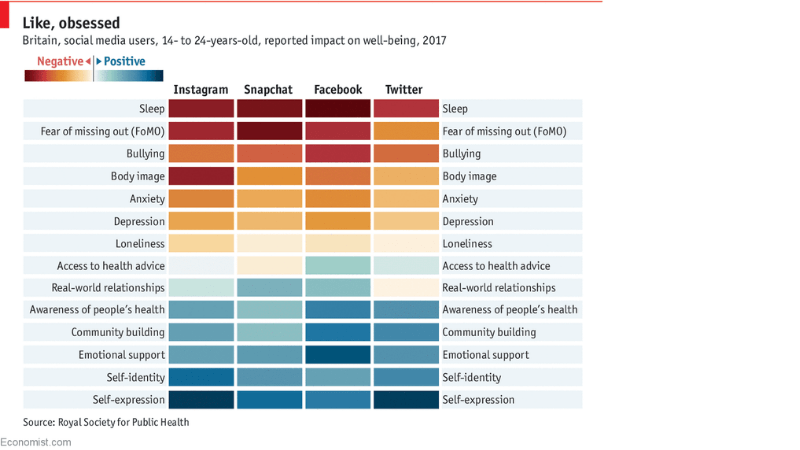Social Media and Your Mental Health
On this mornings commute, I came across this article by Jill Stark for The Sydney Morning Herald. It reminded me of a situation some years ago, when a friend of mine was going through a particularly rough patch in her personal life. You know the sort thing; never one problem to deal with, but everything happened at once. She’d just come out of a long-term relationship, been made redundant from her dream job, and as a result, was facing the very real possibility of having to forgo her much-anticipated trip to Europe. To add to this rather stressful situation her Facebook feed seemed to constantly feature pictures of her ex with his new girlfriend alongside photos of care-free friends enjoying holidays abroad.
Obviously Jill’s story is very different, with much more at stake, but I think I can confidently say we’ve all been there; we’ve all experienced that moment of being drawn into the fictional world of social media and comparing our mundane daily lives with the highlights others choose to present as their own daily lives.
Previously, this short film has been my go-to prop used to pull my friends out of the make-believe online world in which everyone else is having more fun than us. It really does point out the ease at which one can create a seemingly perfect life through social media, when the reality is vastly different. And it's funny too, which definitely helps! To be honest, even without this film, we all know that social media isn’t real life, yet regularly we still get drawn into the mirage. Never has the suspension of disbelief been so powerful as when it forces us to ‘research’ (read: stalk) a little deeper into who that pretty brunette in the picture with him is.
I’m sure many of you reading this will sympathise with the situation; that torturous need for a quick stalk to really ‘understand’ more about the person behind the collection of pixels on our newsfeed. I for one know when moments like this happen, I never feel good about what I find. Questions usually remain unanswered, and on the off-chance I do find ‘answers’, these usually turn out to be wrong anyway. The comparisons easily get us down, and the feeling of inferiority creeps in.
Although a relatively new field and industry, much research has been conducted on the effects social media is having on us. The focus has predominately been on mental health, although there are some reports into the physical effects, such as sleep disturbances and aches and pains too. It doesn’t come as a surprise to report that the majority of research out there points overwhelmingly towards social media providing negative repercussions on our mental health. From addiction to depression and anxiety, jealousy to sleep deprivation, loneliness, to cyber-bullying, the extent of the problems is shocking. Most annoyingly, and I guess ironic, is the way social media is seemingly reducing our social abilities.
In the interest of balance, it’s important to remember it’s not all bad out there on social media. It helps us stay in touch with friends and loved ones, and even reconnect with others we may have lost contact with. As a Brit living in Australia, this is what keeps me logged in. I’ve reconnected with so many people from home who’ve also found themselves in Sydney, some of which I have since become so close with. I can guarantee this would never have happened if it wasn't for a post about their travels popping up on my news feed.

Interestingly, social media has also been proven to provide positive effects on other elements of our mental health including self-expression, self-identity and awareness of peoples health.
So, how is this rant on the dangers of social media related to the world of Digital Marketing Communications? Well, it is the responsibility of social media marketers to be aware of these risks, as well as the benefits; to encourage healthy interaction through these platforms whilst still communicating the brand message, and I think increasingly so, to become more creative and innovative with how they utilise the platforms for social good. I’m going to take liberties now and say we want digital marketers to give us something interesting, thought provoking and relevant our news feed as apposed to generic ads repurposed from print-based campaigns.
For more information about the state of mental health within our industry, read my blog from the end of last year.










